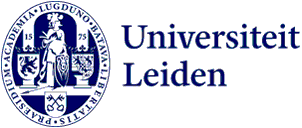395 search results for “sara cell differentiatie” in the Student website
-
 Jurjun van der Velde
Jurjun van der VeldeFaculty of Science
-
 Kirsten Veltman
Kirsten VeltmanFaculty of Science
-
 Klara Beslmüller
Klara BeslmüllerFaculty of Science
-
 Sabine de Winter
Sabine de WinterFaculty of Science
-
 Linglu Xu
Linglu XuFaculty of Science
-
 Elpida Lymperi
Elpida LymperiFaculty of Science
-
 Fengjiao Zhang
Fengjiao ZhangFaculty of Science
-
 Tamara Danilyuk
Tamara DanilyukFaculty of Science
-
 Marina Gorostiola González
Marina Gorostiola GonzálezFaculty of Science
-
 Natasha Tahir
Natasha TahirFaculty of Science
-
 Michiel van Dijk
Michiel van DijkFaculty of Science
-
 Filippo di Tillio
Filippo di TillioFaculty of Science
-
 Sibel Bahtiri
Sibel BahtiriFaculty of Science
-
 Mick van Schaick
Mick van SchaickFaculty of Science
-
 Elsje Burgers
Elsje BurgersFaculty of Science
-
 Lucy Sinke
Lucy SinkeFaculty of Science
-
 Roshni Nair
Roshni NairFaculty of Science
-
 Levi Winkelman
Levi WinkelmanFaculty of Science
-
 Bart Lenselink
Bart LenselinkFaculty of Science
-
 Xiaobing Zhang
Xiaobing ZhangFaculty of Science
-
 Johannes Schimming
Johannes SchimmingFaculty of Science
-
 Annaloes Fokkelman-Klip
Annaloes Fokkelman-KlipFaculty of Science
-
 Nanette Vrijenhoek
Nanette VrijenhoekFaculty of Science
-
 Vera van der Noord
Vera van der NoordFaculty of Science
-
 Chantal Pont
Chantal PontFaculty of Science
-
 Lukas Wijaya
Lukas WijayaFaculty of Science
-
 Steven Kunnen
Steven KunnenFaculty of Science
-
 Linda van den Berk
Linda van den BerkFaculty of Science
-
 Giulia Callegaro
Giulia CallegaroFaculty of Science
-
 Zoran Gavric
Zoran GavricFaculty of Science
-
 Jaco van Veldhoven
Jaco van VeldhovenFaculty of Science
-
 Britt Duijndam
Britt DuijndamFaculty of Science
-
 Xuesong Wang
Xuesong WangFaculty of Science
-
 James Stevens
James StevensFaculty of Science
-
 Arnoud Sonnenberg
Arnoud SonnenbergFaculty of Science
-
 Gerard Mulder
Gerard MulderFaculty of Science
-
 Ine Tijdens
Ine TijdensFaculty of Science
-
 Kirsten Snijders
Kirsten SnijdersFaculty of Science
-
 Jeroen Bussmann
Jeroen BussmannFaculty of Science
-
Jasper's Day
Jasper Knoester is the dean of the Faculty of Science. How is he doing? What kinds of things is he doing and what does his day look like? In each newsletter Jasper gives a peek into his life as dean.
-
Three Leiden PhD candidates awarded Mosaic 2.0 scholarships
Three PhD candidates from Leiden University have been awarded a Mosaic 2.0 scholarship for their PhD research. The Dutch Research Council (NWO) Mosaic 2.0 programme is aimed at an underrepresented group of graduates with a migrant background.
-
 Djibrila Tetereou
Djibrila TetereouFaculty of Humanities
-
 Marcos Neto de Cordova
Marcos Neto de CordovaFaculty of Humanities
-
 Francianne Dos Santos Velho
Francianne Dos Santos VelhoFaculty of Humanities
-
 Ana Cardozo de Souza
Ana Cardozo de SouzaFaculty of Humanities
-
 Aida Gholami
Aida GholamiFaculty of Humanities
-
Mentor or tutor
As part of the Leiden study system we provide first-year bachelor’s students with good support and good academic guidance. This guidance is given by tutors and mentors from your faculty or study programme.
-
Mentor or tutor
As part of the Leiden study system we provide first-year bachelor’s students with good support and good academic guidance. This guidance is given by tutors and mentors from your faculty or study programme.
-
Mentor or tutor
As part of the Leiden study system we provide first-year bachelor’s students with good support and good academic guidance. This guidance is given by tutors and mentors from your faculty or study programme.
-
Mentor or tutor
As part of the Leiden study system we provide first-year bachelor’s students with good support and good academic guidance. This guidance is given by tutors and mentors from your faculty or study programme.
